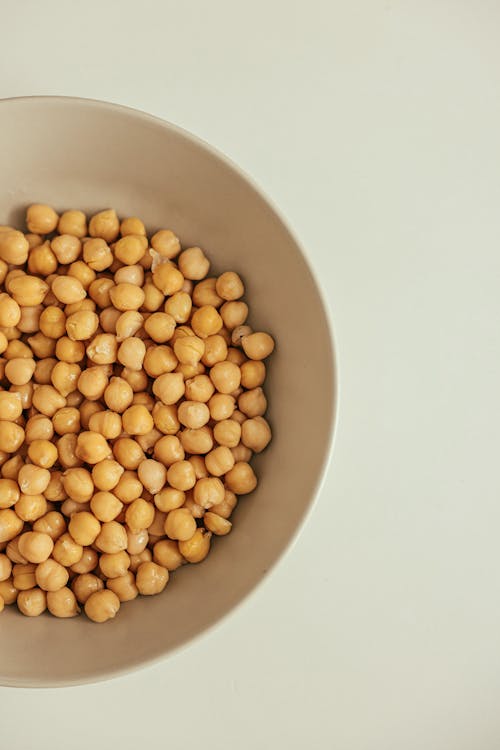Plant-Based Eating 101: Tips for a Balanced Vegetarian Diet
In recent years, the interest in plant-based eating has skyrocketed. Whether motivated by health, environmental concerns, or ethical reasons, more people are turning to vegetarian diets. But what does it mean to follow a balanced vegetarian diet? Here, we provide a comprehensive guide to ensure you get all the essential nutrients while enjoying a diverse and delicious plant-based diet.

Understanding Plant-Based Eating
Plant-based eating emphasizes foods derived from plants, including vegetables, fruits, nuts, seeds, oils, whole grains, legumes, and beans. Unlike vegans, vegetarians might still consume animal products like dairy and eggs. However, the focus remains predominantly on plant-derived foods.
Benefits of a Vegetarian Diet
Numerous studies highlight the benefits of a vegetarian diet, including:
- Improved Heart Health: Plant-based diets are often lower in saturated fats and cholesterol, which can help reduce the risk of heart disease.
- Weight Management: Many people find it easier to maintain a healthy weight on a vegetarian diet due to the high fiber content in plant foods.
- Lower Risk of Chronic Diseases: A vegetarian diet can lower the risk of type 2 diabetes, hypertension, and certain cancers.
Essential Nutrients for Vegetarians
While a vegetarian diet can provide most of the nutrients you need, it's crucial to plan your meals to ensure you're getting enough of the following:
1. Protein

Protein is vital for muscle repair and growth. Vegetarian sources of protein include:
- Legumes: Beans, lentils, and chickpeas
- Nuts and Seeds: Almonds, chia seeds, and hemp seeds
- Soy Products: Tofu, tempeh, and edamame
- Whole Grains: Quinoa, bulgur, and barley
2. Iron

Iron is essential for producing red blood cells. Plant-based iron sources include:
- Leafy Greens: Spinach, kale, and Swiss chard
- Legumes: Lentils and chickpeas
- Seeds: Pumpkin, sesame, and hemp seeds
Enhance iron absorption by combining these with vitamin C-rich foods like oranges, strawberries, and bell peppers.
3. Vitamin B12
Vitamin B12 is crucial for nerve function and the production of DNA and red blood cells. Since it's primarily found in animal products, vegetarians should consider fortified foods or supplements.
- Fortified Foods: Nutritional yeast, fortified plant milks, and breakfast cereals
- Supplements: Vitamin B12 supplements are widely available and recommended for strict vegetarians.
4. Omega-3 Fatty Acids

Omega-3s support heart and brain health. Plant sources include:
- Flaxseeds: Ground flaxseeds and flaxseed oil
- Chia Seeds: Add to smoothies, yogurt, or oatmeal
- Walnuts: A great snack or salad topping
5. Calcium
Calcium is necessary for bone health. Good sources are:
- Dairy or Fortified Alternatives: Milk, yogurt, cheese, and fortified plant milks
- Leafy Greens: Broccoli, bok choy, and kale
- Tofu: Particularly calcium-set tofu
6. Vitamin D
Vitamin D helps with calcium absorption and bone health. While sunlight is the best source, consider:
- Fortified Foods: Plant milks and cereals
Supplements: Vitamin D3 supplements derived from lichen for a vegan option
Delicious Vegetarian Recipes to Try
Breakfast: Overnight Oats
Combine oats, chia seeds, almond milk, and your favorite fruits in a jar. Let it sit overnight for a quick and nutritious breakfast.
Lunch: Quinoa Salad
Mix cooked quinoa with chopped vegetables, beans, and a lemon-tahini dressing for a protein-packed meal.
Dinner: Lentil Soup
Cook lentils with vegetables, garlic, and spices for a hearty and filling soup.
Snack: Hummus and Veggies
Pair homemade or store-bought hummus with carrot sticks, cucumber slices, and bell pepper strips for a satisfying snack.
Conclusion
Adopting a vegetarian diet is a rewarding choice that can benefit your health and the environment. By focusing on a variety of nutrient-dense foods and planning your meals carefully, you can enjoy a balanced and fulfilling plant-based lifestyle.
For more information on vegetarian nutrition, visit the American Dietetic Association and the Vegetarian Society.

 Cricket Score Counter
Cricket Score Counter Heads or Tails
Heads or Tails
You have not logged in, please Login to comment.